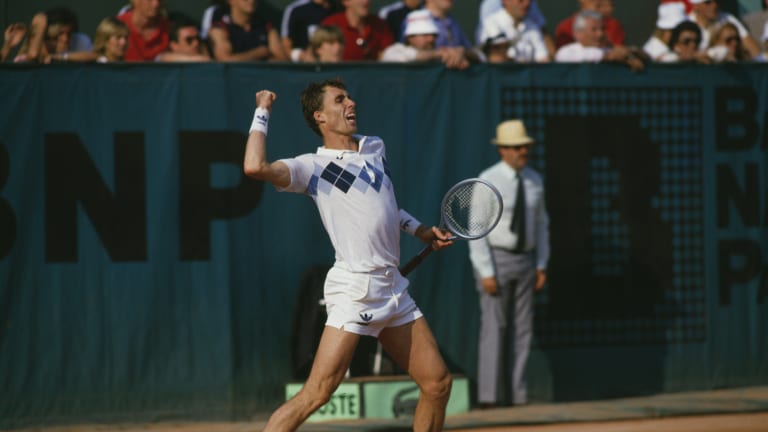Brain Training: It's a good time to be a sports psychologist—particularly one who specializes in tennis
By Sep 19, 2021pickleball
The Process: How Jessie Irvine took her tennis game to the pickleball court
By Nov 07, 2023pickleball
A trip through California’s courts reveals plenty about pickleball’s inviting and intoxicating culture
By Nov 07, 2023pickleball
PBTV Primer: What to watch for when tuning into pickleball
By Nov 07, 2023S-Hertogenbosch, Netherlands
Alexandrova, Kudermetova to meet in all-Russian women's Den Bosch final
By Jun 17, 2023ATP Stuttgart, Germany
Seeds Frances Tiafoe, Hubert Hurkacz, Lorenzo Musetti move into Stuttgart quarterfinals
By Jun 14, 2023Facts & Stats
Stat of the Day: Gael Monfils battles to first tour-level win of injury comeback at Roland Garros
By May 30, 2023S-Hertogenbosch, Netherlands
Venus Williams to play first match since January at 's-Hertogenbosch grass-court tournament
By May 30, 2023Roland Garros
Three Chinese men play at French Open, the country's first male entrants in Paris since 1937
By May 29, 2023Facts & Stats
Stat of the Day: Novak Djokovic is now 19-0 in his career in first-round matches at Roland Garros
By May 29, 2023Brain Training: It's a good time to be a sports psychologist—particularly one who specializes in tennis
These days, no trophy ceremony is complete until the winner has paid tribute to his or her mental coach.
Published Sep 19, 2021
Advertising
Advertising

Iga Swiatek credits much of her recent success to her sports psychologist.
© Getty Images
Advertising
Advertising

Ivan Lendl, a pioneer in so many aspects of tennis training, made the mental game part of his regimen 35 years ago.
© Getty Images